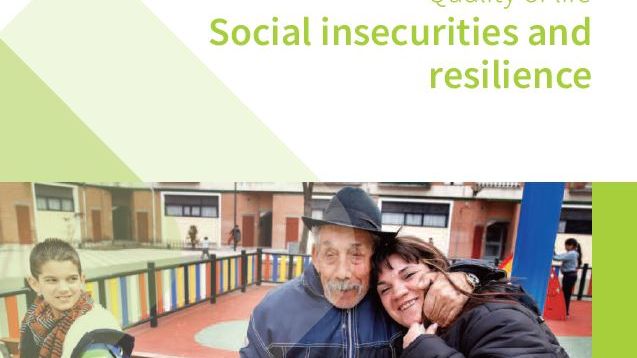
News -
Social cohesion and well-being in Europe: A home run for team EU?
In recent years, the EU has put increasing emphasis on the promotion of social cohesion as a central element for the improvement of quality of life for its citizens. With initiatives such as the Europe 2020 strategy, the social investment package and the European Pillar of Social Rights, together with the associated Social Scoreboard, the goal to promote fairer and more inclusive societies has taken centre stage. But is this EU goal hitting a home-run with EU citizens, or is the reality closer to a strike out?
Eurofound's latest report from the Quality of Life Survey looks at five key aspects of social cohesion including perceived social exclusion, perceived social tensions, interpersonal trust, participation in society and a sense of community. Collectively, these aspects have an important bearing on the well-being of citizens.
As one might expect, the overall picture across the EU is a very varied one with considerable regional differences in most areas of observation. Social exclusion, for example, has become more common in south-eastern Member States, such as Bulgaria, Cyprus and Greece, which are still feeling the effects of the economic crisis. The prevalence of perceived tensions is also high, particularly religious tensions which seem to have become a significant issue in the EU. Ethno-cultural tensions and perceived economic tensions are also prevalent whilst other types of tensions - between rich and poor and between managers and workers - are on the decline. Levels of participation in society are also discouragingly low with fewer than two out of ten citizens getting involved.
The most vulnerable groups tend to be those that that are unemployed, people in the low income class and/or with low levels of education, and particularly those who are chronically ill. When it comes to ethno-cultural social tensions however, it is the chronically ill as well as those that live in the countryside and, perhaps surprisingly, those who are employed and/or highly educated. It is interesting to note that old age is an additional risk factor for participation in society.
One factor that has emerged as a new and important force for social cohesion is digital skills. The acquisition of digital skills by members of society is associated with significantly lower feelings of social exclusion. In terms of hitting a home-run therefore, it would seem that policies targeting the economic and social inclusion of citizens, as well as an increased focus on digital skills, represent the pathway to more cohesive societies and happier citizens in the EU.
Download the report here.


